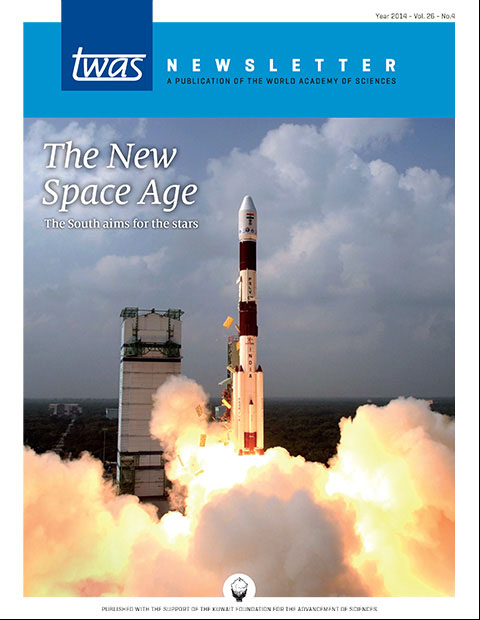 Almas Taj Awan’s path in science has been unique. She has quickly travelled from hosting radio and television programmes in her home country of Pakistan to becoming a promising biotechnology researcher with international experience. Her PhD research on using the waste from orange juice production as a source of bioethanol has recently led to her being a finalist in the 2015 GIST (Global Innovation through Science and Technology) Tech-I Competition.
Almas Taj Awan’s path in science has been unique. She has quickly travelled from hosting radio and television programmes in her home country of Pakistan to becoming a promising biotechnology researcher with international experience. Her PhD research on using the waste from orange juice production as a source of bioethanol has recently led to her being a finalist in the 2015 GIST (Global Innovation through Science and Technology) Tech-I Competition.
And her career has just begun. Now, she tells her story of what it’s like to be a Pakistani scientist in Brazil, and how a PhD fellowship with TWAS enriched her life and made her scientific career possible.
-----
“Really, are you from Pakistan? So where is your burka?”
It’s a question I often hear from Brazilian people. Yes, I am Almas, a Pakistani lady; I breathe, I work, I earn an income and I am a significant member of the community where I live, whether it is Pakistan or Brazil. Unfortunately, the shifting paradigms of the emerging urban Pakistani woman are not highlighted in the media.
 Passing all my teenage years as a thoughtful little girl, I finally broke my silence and started sharing my thoughts at university and joined literary societies. My passion for letting myself be heard took me to a Pakistani radio station where I started my career as a radio show host. I loved my job, and during two to three hours of live shows, it was just me and my voice flying on the FM air waves. In 2007, I got the chance to host shows on the national TV channel, PTV.
Passing all my teenage years as a thoughtful little girl, I finally broke my silence and started sharing my thoughts at university and joined literary societies. My passion for letting myself be heard took me to a Pakistani radio station where I started my career as a radio show host. I loved my job, and during two to three hours of live shows, it was just me and my voice flying on the FM air waves. In 2007, I got the chance to host shows on the national TV channel, PTV.
These activities were actually hobbies that went alongside with my studies. One of my university professors suggested that I apply for TWAS-CNPq fellowships. I did, and after getting approval by TWAS, I stepped into the country of football, Brazil.
That is how I learned to appreciate life, to appreciate different cultures, to be patient with others, to move outside of my comfort zone, to make quick decisions independently, to be a risk taker, and try to live life to the fullest.
My journey from being a media person to a young woman researcher in science from a developing country was a real shift. Nonetheless, with time, I discovered that I can connect them together for community awareness.
It is because of the TWAS fellowship programme that I was able to think outside of the box and develop a much brighter vision. Currently, I am a post-doctoral researcher and I am looking for opportunities to use my skills by working on green scientific technologies and resolving environmental issues. I strongly believe in hope and struggle. Keeping that in mind, life goes on in a better way.


